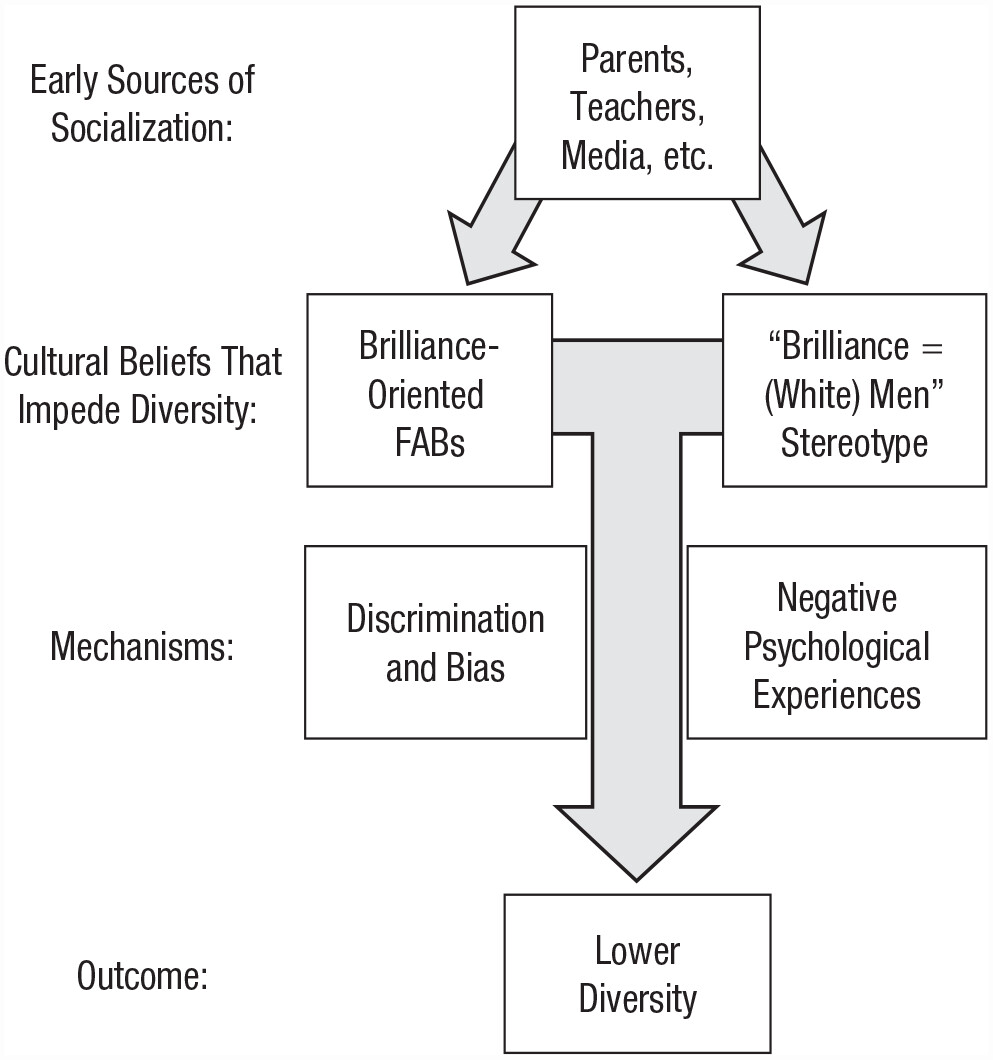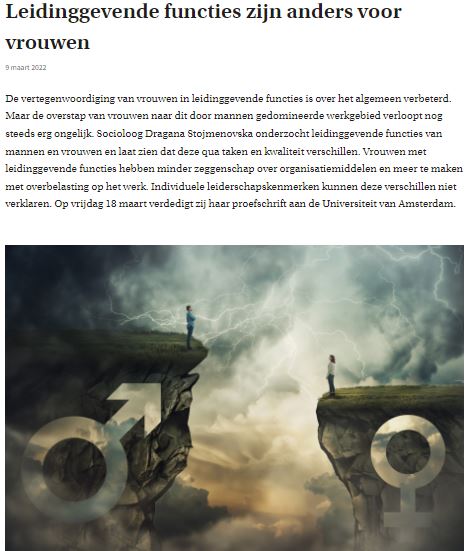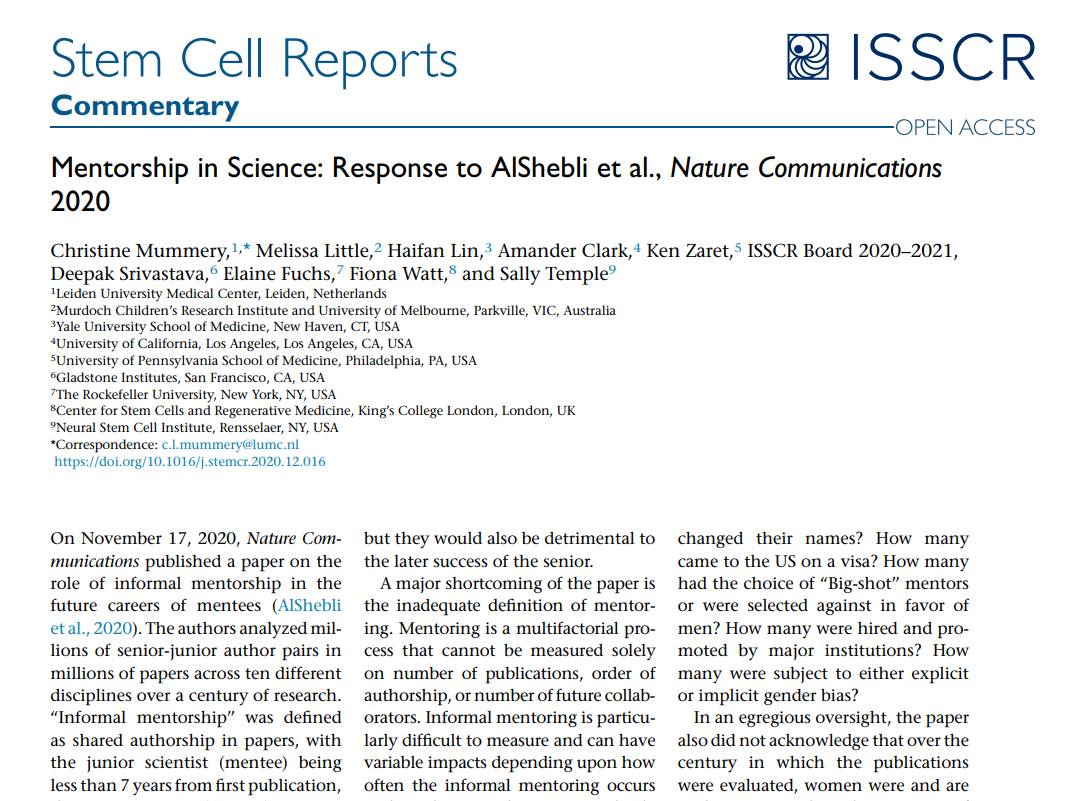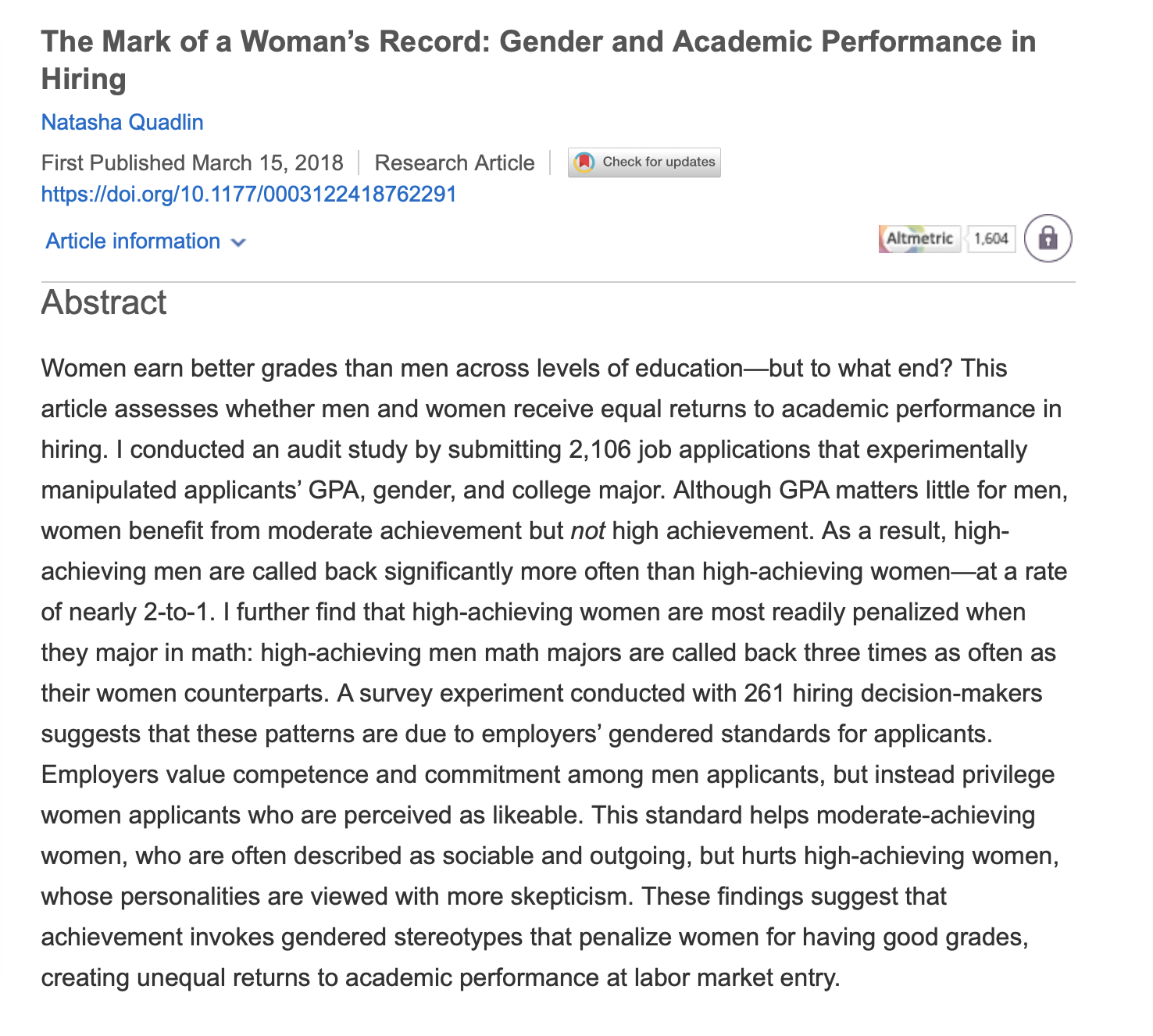In their article, Belle Derks and colleagues argue that the ‘queen bee’ phenomenon – where women in academia focus on their own success and do not actively support other women – is wrongly perceived as a cause of gender inequality. They explain that this behavior is a survival strategy in an academic culture that rewards masculine traits and structurally disadvantages women. Holding women responsible for achieving gender equality distracts from addressing systemic causes. The authors advocate for structural reforms and a culture that promotes collaboration and equality, benefiting all academics.
Causes and consequences of gender stereotypes
A recent study by Muradoglu et al. (2023) examines why certain fields have more diverse representation than others. The researchers introduce the Field-Specific Ability Beliefs (FAB) model, which suggests that diversity gaps in professions can be linked to two key beliefs: the perception that success requires exceptional intellectual ability ("brilliance") and the stereotype that associates such brilliance primarily with White men. This model proposes that fields emphasizing innate intellectual talent over acquired skills are less accessible to women and racial minorities, contributing to underrepresentation in these fields.
Chatman and colleagues (2022) examined how stereotype perceptions of professional women shift as they age, particularly how these changes lead to career challenges. The study shows that middle-aged women often face stereotype incongruity: they are perceived as “agentic” – competent, assertive, and ambitious – but are seen as lacking traits associated with “warmth,” such as empathy and kindness. This perception creates challenges in professional environments because agentic qualities in women frequently clash with social expectations of warmth and caregiving traits traditionally associated with femininity. As a result, stereotype tensions arise, which can lead to negative consequences such as fewer promotion opportunities and lower performance evaluations.
Although the representation of women in the workplace authority has slowly increased, the representation of men and women in leadership roles remains disproportionate. In her PhD thesis, Dragana Stojmenovska examined how women’s authority jobs differ both in tasks and quality. Specifically, she looked at the role played by cultural beliefs. Her research shows that prevailing gender stereotypes feed through into the gender gap for leadership roles. For instance, men appear to have more control over organizational resources and women more over people-oriented issues and human resources. Moreover, Stojmenovska's research addressed the differences in job quality between men and women in authority. She found lower levels of job resources and higher levels of job strains among women especially in authority. Moreover, women in authority were found to report sexual harassment, workplace bullying and job burnout most frequently among all employees.
Read more about the study here.
On November 17, 2020, Nature Communications published a paper on the role of informal mentorship in the future careers of mentees (AlShebli et al., 2020). Given their leadership roles in the International Society for Stem Cell Research, Mummery and colleagues have collectively spoken out about the shortcomings of the paper and the importance of eliminating inequities that young scientists face throughout their careers. They also explain why Nature Communications' response to the retraction of the paper was unacceptable. Read the full commentary here.
Mummery, C., Little, M., Lin, H., Clark, A., Zaret, K., Barker, R., ... & Temple, S. Mentorship in Science: Response to AlShebli et al., Nature Communications 2020. Stem Cell Reports, 16(1), 1-2. https://doi.org/10.1016/j.stemcr.2020.12.016
On November 17, 2020, Nature Communications published a paper on the role of informal mentorship in the future careers of mentees (AlShebli et al., 2020). Given their leadership roles in the International Society for Stem Cell Research, Mummery and colleagues have collectively spoken out about the shortcomings of the paper and the importance of eliminating inequities that young scientists face throughout their careers. They also explain why Nature Communications' response to the retraction of the paper was unacceptable. Read the full commentary here.
Mummery, C., Little, M., Lin, H., Clark, A., Zaret, K., Barker, R., ... & Temple, S. Mentorship in Science: Response to AlShebli et al., Nature Communications 2020. Stem Cell Reports, 16(1), 1-2. https://doi.org/10.1016/j.stemcr.2020.12.016
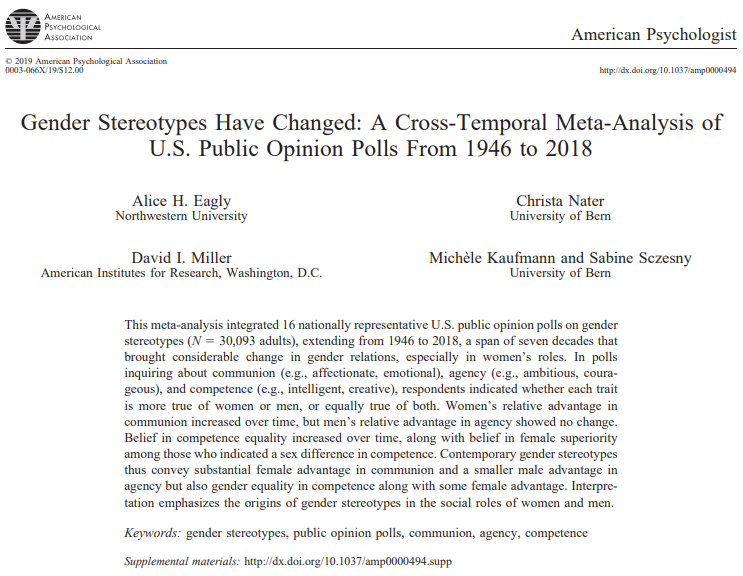
Eagly, A. H., Nater, C., Miller, D. I., Kaufmann, M., & Sczesny, S. (2019). Gender stereotypes have changed: A cross-temporal meta-analysis of US public opinion polls from 1946 to 2018. American Psychologist. https://dx.doi.org/10.1037/amp0000494
Quadlin, N. (2018). The mark of a woman's record: Gender and academic performance in hiring. American Sociological Review, 83, 331-360. https://doi.org/10.1177/0003122418762291
Read the newsletter (in Dutch) "Beeldvorming van wetenschappers; Angels in Action: Ruimte voor Vrouwen! (Senaatskamers, Leiden)"of 8 March 2016
Hyde, J. S. (2014). Gender similarities and differences. Annual Review of Psychology, 65, 373-398. https://doi.org/10.1146/annurev-psych-010213-115057

Stephens, N.M., & Levine, C.S. (2011). Opting out or denying discrimination? How the framework of free choice in American society influences perceptions of gender inequality. Psychological Science, 22, 1231-1236. https://doi.org/10.1177/0956797611417260
Schmitt, M.R., Branscombe, N.R., Postmes, T., & Garcia, A. (2014). The consequences of perceived discrimination for psychological well-being: A meta-analytic review. Psychological Bulletin, 140, 921-948. https://doi.org/10.1037/a0035754
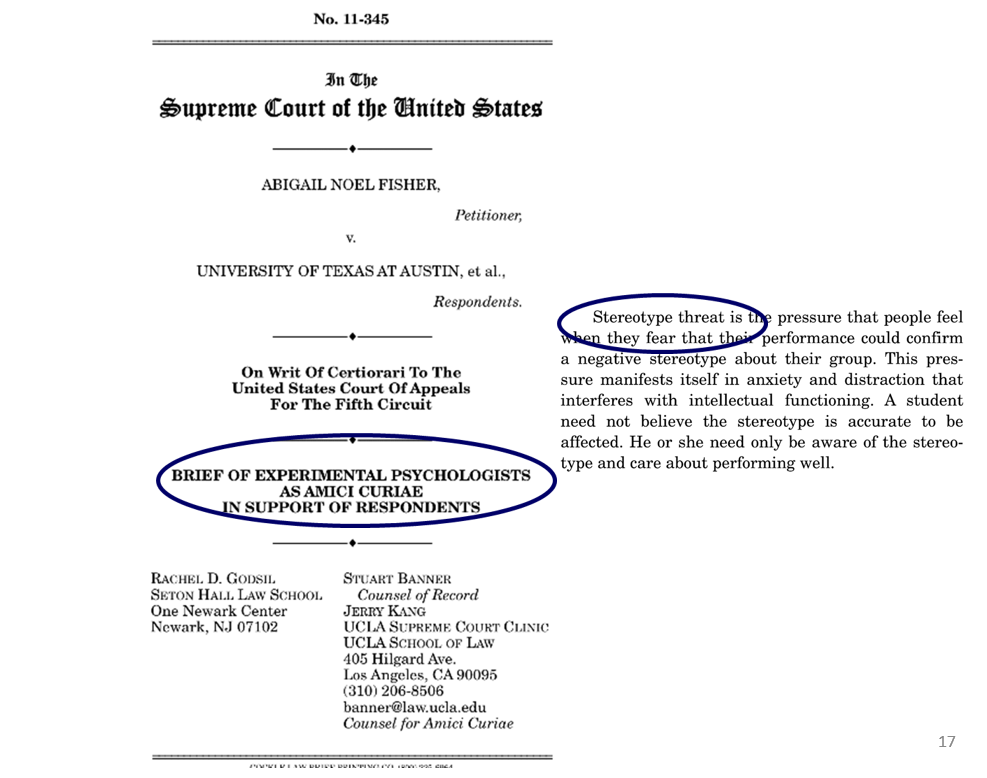
Shapiro, J. R. & Williams, A. M. (2012). The role of stereotype threats in undermining girls’ and women’s performance and interest in STEM fields. Sex Roles, 66, 175-183. https://doi.org/10.1007/s11199-011-0051-0
Support team
Privacy





